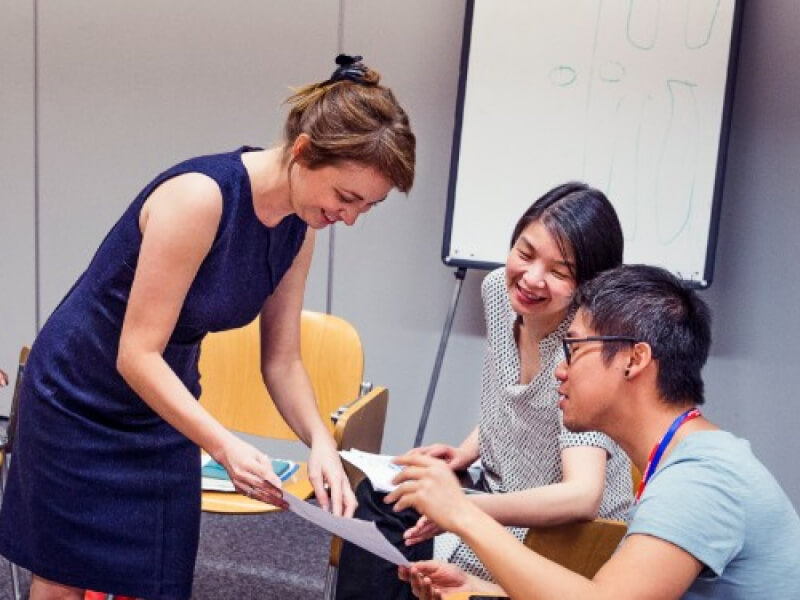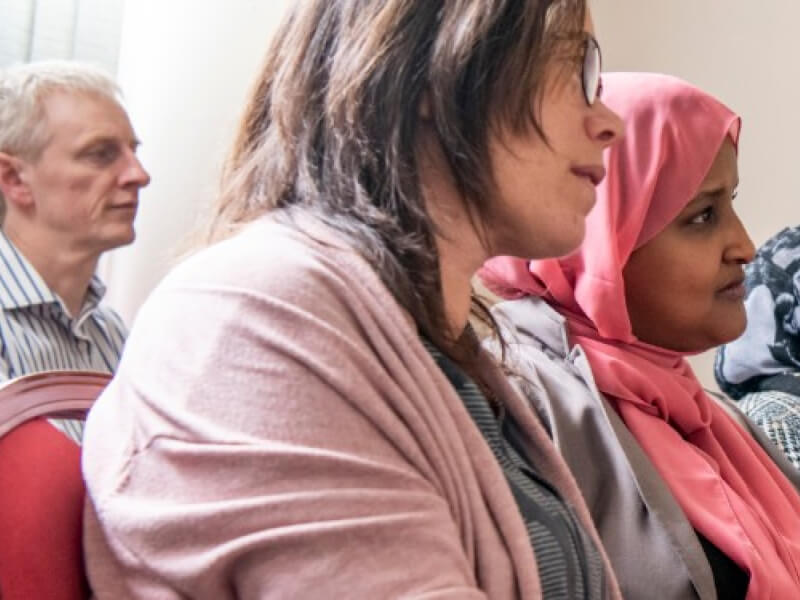
Career development opportunities
We offer a number of fellowships and development awards relevant to those looking to explore and get involved in MLTC research.


We aim to improve the lives of people with multiple long-term conditions and their carers, through research.
The term ‘multiple long-term conditions’ (MLTC) refers to the co-existence of two or more chronic conditions (physical or mental) in a person.
In medical and research circles, this has often been referred to as 'multimorbidity'. We use the term MLTC as we find it is better understood and preferred by patients, carers and the public.
MLTC research is everyone’s business.
There are an estimated 14 million people in England living with MLTC. This number is growing, in line with our ageing population.
It also affects young people, with almost 20% of 25–64-year-olds having more than one condition. We know that those living in the most deprived areas are more likely to develop MLTC earlier in life.
It is already estimated that people with MLTC account for more than half of NHS primary and secondary care costs.
Clinical services are typically organised around single conditions. This means the health and care system does not work as well for people living with MLTC. People are often passed between specialists, having to repeat their stories and feel the management of their conditions fails to take account of their needs.
These factors make managing MLTC a challenge for health and social care services. It also places a huge burden on people with MLTC and their carers.
This presents an opportunity for research to provide the evidence needed to improve the lives of people with MLTC.
Our 2023 evidence collection explores the intersection of MLTC and health inequalities and how we can address the challenges.
We also published an evidence collection in 2021 about the risks of MLTC, and its impact on people and health and care services.
We are undertaking work to foster a change in NIHR culture and practices to promote and enable research into MLTC.
Our strategic framework sets out what we will do to drive forward MLTC research. It is informed by a series of workshops with people with MLTC, their families and carers. It outlines what we need to do to create a common understanding of the issues. This includes broad evidence aims but also cultural aims, to support MLTC research over the coming decades.
NIHR Strategic Framework for Multiple Long-Term Conditions Research
We have established a series of task and finish groups which focus on:
A Multiple Long-Term Conditions Cross-NIHR Collaboration (MLTC CNC) programme has been established to bring together the NIHR’s translational, applied and policy research infrastructure to respond to the NIHR Strategic Framework for MLTC Research; and work together to tackle the MLTC research questions that could not be achieved without this cross-disciplinary collaborative endeavour.
We are working in partnership with a number of medical research funders and charities to overcome the structural and cultural challenges in MLTC research, including the Academy of Medical Sciences and Medical Research Council.
We have a shared webpage of MLTC: helpful resources between our partners.
Our work will support the research needed to better understand the trends, clusters, mechanisms and causes, burden, prevention and management of MLTC. Our interest in MLTC research also includes children and young people with complex care needs, who experience the health and social care system in a similar way to people living with MLTC.
All our funding programmes encourage applications for MLTC research. We do offer some MLTC-specific research funding opportunities:
In addition, we are funding two large-scale, multidisciplinary programmes to identify and map common clusters of disease and their trajectories:
Both programmes look at wider causes, including health inequalities. We are also funding research to support the rapid uptake of research findings into routine practice.

We offer a number of fellowships and development awards relevant to those looking to explore and get involved in MLTC research.

Explore how we work with industry and other partners. Get in touch and see if we can work together.

Be part of research and help shape our future studies. Find out more in our patients and public area.
MLTC is a significant and growing global health challenge, with an urgent need for research to help better understand and inform treatment and care in low and middle-income countries (LMICs). Although the rise in MLTC is a global issue, it is context-dependent and therefore the research priorities for high-income countries such as the UK are often not directly transferable to LMIC settings.

We have awarded £19.3 million to fund research on interventions to improve outcomes for people with MLTC in LMICs through the Research and Innovation for Global Health Transformation (RIGHT) call 3. We will be launching another RIGHT call focusing on MLTC in LMICs in Autumn 2022.
We also support research on MLTC in LMIC contexts through our researcher-led calls, including:
We partner with other global health research organisations to increase our influence and impact, including supporting high quality research addressing chronic conditions through the Global Alliance for Chronic Diseases (GACD). This partnership provides annual funding opportunities on the GACD website.
Read examples of our global health research on MLTCs in these case studies:
Journal article which outlines the challenges that people with MLTC and their carers face within the health and care system and how they would like these addressed.
An editorial from the British Medical Journal about recognising MLTC as clusters of disease and how the health and care sector can respond.